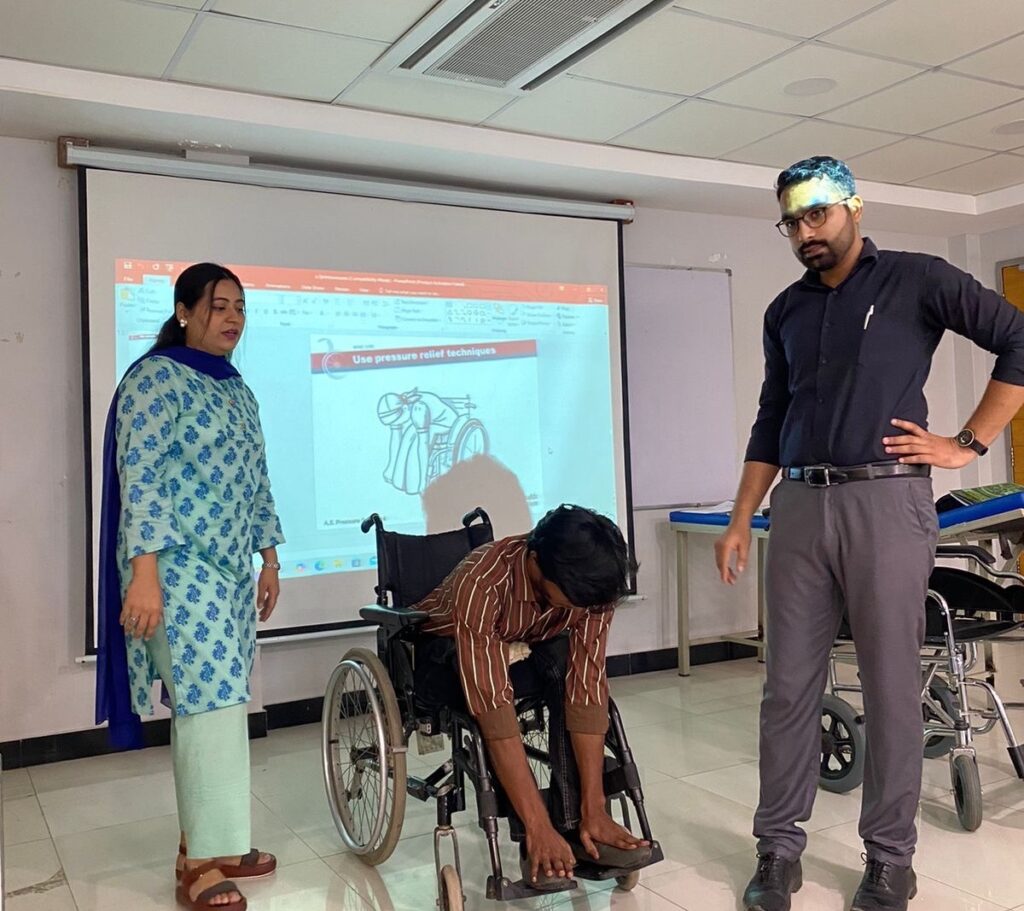
By Cécile Dupré and Johar Ali for ReLAB-HS
Despite a high demand for wheelchairs in Pakistan among individuals with limited mobility, there is a significant gap in the availability of wheelchair services. A key contributing factor is the lack of trained rehabilitation professionals, largely due to limited or non-existent training opportunities in the country. Recognizing this critical issue, Learning, Acting, and Building for Rehabilitation in Health Systems (ReLAB–HS) delivered basic wheelchair service training to rehabilitation professionals from November 4 – 8, 2024, in Peshawar, as part of its mission to integrate rehabilitation including assistive technology (AT) into health systems.
As a testament to the training’s impact and local enthusiasm for sharing and amplifying learnings, Shahab U. and Hiba K.—two occupational therapists who had completed the training—independently organized a pre-conference workshop titled “Basic Level Wheelchair Service Training” during the 1st International Conference of Occupational Therapy in Karachi, Pakistan, on November 21, 2024. This initiative is particularly significant as it demonstrates how equipping local professionals with the right skills can spark leadership, creativity, inspire peer learning, and begin to address the gaps in rehabilitation services from within the community itself.
Having participated in the ReLAB-HS wheelchair service training, Shahab and Hiba were well-prepared and motivated to independently organize and deliver the training to other rehabilitation professionals from across Pakistan, aiming to enhance skills and exchange expertise in rehabilitation and AT.
The workshop delivered both theoretical knowledge and practical skills, focusing on key wheelchair service concepts and processes. It emphasized the four critical steps of wheelchair service delivery, including assessment of user’s physical and living conditions to prescribe appropriate wheelchairs, accurate measurement techniques and effective collaboration with wheelchair technicians to guarantee properly fitted wheelchairs, and training participants on needful adjustment and use of the wheelchair with close follow up. Participants engaged in interactive sessions, including presentations, group activities, and direct interaction with wheelchair users. Including wheelchair users in the workshop added a valuable real-time perspective, enriching participants’ understanding and amplifying the effectiveness of the training.
“I would like to express my heartfelt gratitude to ReLAB-HS for providing us with exceptional training on basic and intermediate-level wheelchair services. The skills and knowledge I gained through this program significantly boosted my confidence and competence in delivering quality wheelchair service training,” said Shahab. “This foundation empowered me to transfer this knowledge effectively to the participants, equipping them with valuable insights into wheelchair services for healthcare professionals, students, and the users.”
This workshop marked an important step toward professionalizing wheelchair services in Pakistan, highlighting the transformative power of training and mentorship.